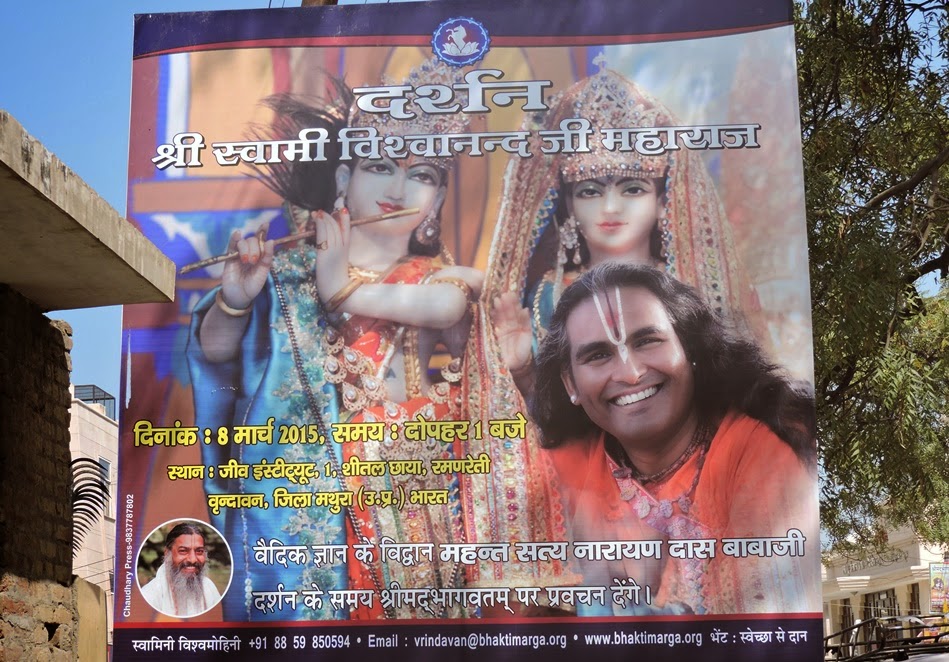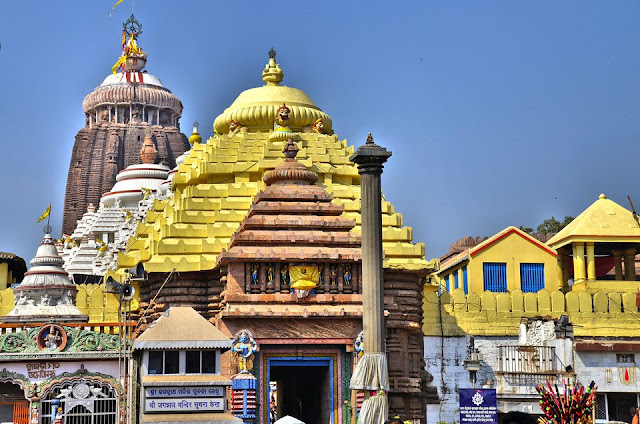Continuing those thoughts on tṛṣṇā
This idea of a middle stage of love is probably not new; there is nothing new under the sun, but it arises out of a conviction that everything in the human condition is material for the purpose of spiritual culture. If love is the goal, then how powerful a device human love must be for the culture of Divine Love!
We say Krishna is the attractive power. His reflection is mundane Lust who so easily conquers over the three worlds. We are told to see him in all the various opulent and wonderful manifestations of material creation, with this one exception. But that is completely ludicrous. If we cannot recognize the presence of Krishna in the most powerful forces that exist, then our whole endeavor is a mockery.
I will admit that this is like playing with nuclear fuel in some ways. But there is a characteristic where material pleasure and spiritual pleasure have an unlikely feature in common. Feeding the flames results in their growing higher.
The famous verse by Yayati, which is found in the Manu-samhita, Mahabharata and also in the Bhagavatam (9.19.14) --
na jātu kāmaḥ kāmānāṁ hy upabhogena śāmyati haviṣā kṛṣṇa-vartmaiva punar evābhivardhate
This is a warning against the continuous frustration of material desire. Yayati had exchanged his age for his son Puru's youth so that he could enjoy another lifetime of sense gratification, but he came to regret it and this was his lament.
However, in the Gita even Arjuna says that he could never be satiated hearing Krishna's glories. And Harilal Vyasa also quotes this following verse in commenting on RRSN 124 (Gaudiya edn. 125). [I don't know where he got it.]
rasena tṛṣṇā śāmyeta kiṁ svit saivātivardhate | pāyaṁ pāyaṁ punaḥ pītvā citraṁ bāḍava-tāṇḍavam ||
There are many verses like this--
kṛṣṇera mādhurya jei nitya pāna kore tṛṣṇā śānti nāi, tṛṣṇā bāḍe nirantare
So my first noble truth was happiness. And the cause of that happiness is tṛṣṇā, just like the Buddha says it is the cause of suffering. The Buddha was not wrong, but it is a question of knowing where to direct that tṛṣṇā. yogaḥ karmasu kauśalam. The tṛṣṇā itself does not change. In fact, trishna itself is the ultimate causal factor of the pleasure. The only problem is na te viduḥ svārtha gatiṁ hi viṣṇum.
In fact, it seems that in order to enjoy, the tṛṣṇā energy needs to be increased. Without tṛṣṇā, you could be in front of an ocean of nectar or in front of Krishna himself and you would not feel anything.
Tṛṣṇā is an integral part of the jiva's svarūpa. This is why I say that the āruhya kṛcchreṇa paraṁ padam verse refers to all so-called muktas. Mukti is described in the Yoga-sūtra as svarūpāvasthānam, being situated in one's natural constitutional position. This is also the Bhagavatam's definition. So if our nature is to thirst for (1) service to the Divine Couple and (2) the relish of experiencing the joy of divine rasa, then how can anything else be called liberation? Therefore the Bhagavatam says vimukta-māninaḥ, they only think they are liberated.
The difficulty here is the apparent contradiction of suffering when the thirst to relish and serve Krishna is unrequited. We call this separation, but there is really no way to deal with this philosophically that can make sense. If it did not make sense to the gopis, then how will it make sense to us? The only viable description remains that it is a mix of ambrosia and poison. To recognize that and to revel in it is really the sign of spiritual advancement in bhakti. But it comes with a warning label: "This is likely to cause some discomfort."
The other solution is the one that Krishna repeatedly gives to the gopis in the Bhagavatam, and which they repeatedly reject: You have to be established in Brahman realization in order to be able to withstand the torments of trishna, in order to be able to relish them. You can steady your mind and body with the help of yoga and jnana. Sounds weird, no?
Well that is what I mean by saying that the teachings of the Gita are not to be abandoned, but that they have to be assimilated into the higher stages of bhakti, just like a knowledge of elementary arithmetic is a part of the natural knowledge of an advanced mathematician.

We say Krishna is the attractive power. His reflection is mundane Lust who so easily conquers over the three worlds. We are told to see him in all the various opulent and wonderful manifestations of material creation, with this one exception. But that is completely ludicrous. If we cannot recognize the presence of Krishna in the most powerful forces that exist, then our whole endeavor is a mockery.
I will admit that this is like playing with nuclear fuel in some ways. But there is a characteristic where material pleasure and spiritual pleasure have an unlikely feature in common. Feeding the flames results in their growing higher.
The famous verse by Yayati, which is found in the Manu-samhita, Mahabharata and also in the Bhagavatam (9.19.14) --
This is a warning against the continuous frustration of material desire. Yayati had exchanged his age for his son Puru's youth so that he could enjoy another lifetime of sense gratification, but he came to regret it and this was his lament.
However, in the Gita even Arjuna says that he could never be satiated hearing Krishna's glories. And Harilal Vyasa also quotes this following verse in commenting on RRSN 124 (Gaudiya edn. 125). [I don't know where he got it.]
Does thirst (tṛṣṇā) quieten when you drink of rasa, or does it increase? Drink again and again, and watch the multicolored undersea volcano burst into a dance of destruction!
There are many verses like this--
Krisha's sweetness is such that one who drinks it constantly gets no relief from his thirst to taste it, but instead that thirst grows constantly. (CC Adi 4)
So my first noble truth was happiness. And the cause of that happiness is tṛṣṇā, just like the Buddha says it is the cause of suffering. The Buddha was not wrong, but it is a question of knowing where to direct that tṛṣṇā. yogaḥ karmasu kauśalam. The tṛṣṇā itself does not change. In fact, trishna itself is the ultimate causal factor of the pleasure. The only problem is na te viduḥ svārtha gatiṁ hi viṣṇum.
In fact, it seems that in order to enjoy, the tṛṣṇā energy needs to be increased. Without tṛṣṇā, you could be in front of an ocean of nectar or in front of Krishna himself and you would not feel anything.
Tṛṣṇā is an integral part of the jiva's svarūpa. This is why I say that the āruhya kṛcchreṇa paraṁ padam verse refers to all so-called muktas. Mukti is described in the Yoga-sūtra as svarūpāvasthānam, being situated in one's natural constitutional position. This is also the Bhagavatam's definition. So if our nature is to thirst for (1) service to the Divine Couple and (2) the relish of experiencing the joy of divine rasa, then how can anything else be called liberation? Therefore the Bhagavatam says vimukta-māninaḥ, they only think they are liberated.
The difficulty here is the apparent contradiction of suffering when the thirst to relish and serve Krishna is unrequited. We call this separation, but there is really no way to deal with this philosophically that can make sense. If it did not make sense to the gopis, then how will it make sense to us? The only viable description remains that it is a mix of ambrosia and poison. To recognize that and to revel in it is really the sign of spiritual advancement in bhakti. But it comes with a warning label: "This is likely to cause some discomfort."
The other solution is the one that Krishna repeatedly gives to the gopis in the Bhagavatam, and which they repeatedly reject: You have to be established in Brahman realization in order to be able to withstand the torments of trishna, in order to be able to relish them. You can steady your mind and body with the help of yoga and jnana. Sounds weird, no?
Well that is what I mean by saying that the teachings of the Gita are not to be abandoned, but that they have to be assimilated into the higher stages of bhakti, just like a knowledge of elementary arithmetic is a part of the natural knowledge of an advanced mathematician.




Comments